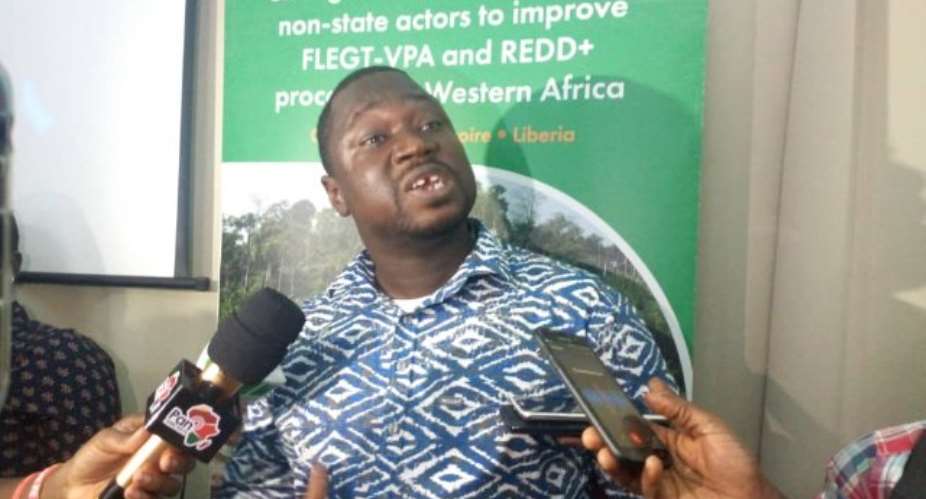A research by Tropenbos Ghana has revealed that cocoa farming encroachment in Krokosua Hills, Sui River and Tano Offin Forest Reserves (FRs), has resulted in a 700% rate of deforestation within 2 decades.
The study which was published on Wednesday, stated that Ghana stands to lose more forest cover in the next five years if “a business as usual approach” persists.
Interacting with the media, the Tropenbos National Project Coordinator, Daniel Kofi Abu, indicated that authority often ignores the alarming effects of the actions of the cocoa farmers because of how essential the commodity is to the country’s revenue.
“This is unacceptable; we cannot allow our greed and our own selfish interest to drive us into finishing our forest reserves,” he stated.
The research titled “Drastic changes are needed in the cocoa sector to halt deforestation in Ghana” by Tropenbos Ghana, a forest and trees focused organisation, is to identify the issues and suggest measures to address the situation.
Read the full report below:
The Project Coordinator was of the view that cocoa farmers and landowners could effectively utilise a little piece of land and produce enough cocoa beans without eating into the three FRs.
“Here, we do not practice proper intensification, so naturally farmers think that the way forward is for them to expand especially given that most of the forest looks virgin. And that is where the problem is,” he emphasised.
He, therefore, called on government, chiefs and major stakeholders to form local committees who will discourage farmers from encroaching on forest reserves.
“We want government to review statuses of the forest reserves, management regimes and plans to preserve the FRs,” he noted.
Mr Abu further attributed deforestation on FRs to population growth, agriculture expansion, illegal logging, fuel wood, illegal mining and mineral exploitation and urged the private sectors to fund activities relating to forest restoration.
Tropenbos Ghana is a Non-Governmental Organization (NGO) implementing a European Union (EU) project of “strengthening the capacities of non-state actors to improve Forest Law Enforcement, Governance and Trade, Voluntary Partnership Agreement (FLEGT-VPA) and Reducing Emission from Deforestation and forest Degradation (REDD+) in West Africa.
—Myjoyonline





 Dumsor: Don't rush to demand timetable; the problem may be temporary — Atik Moha...
Dumsor: Don't rush to demand timetable; the problem may be temporary — Atik Moha...
 Space X Starlink’s satellite broadband approved in Ghana — NCA
Space X Starlink’s satellite broadband approved in Ghana — NCA
 2024 election will be decided on the grounds of the economy; choice of running m...
2024 election will be decided on the grounds of the economy; choice of running m...
 Dumsor: We're demanding less; just give us a timetable — Kwesi Pratt to ECG
Dumsor: We're demanding less; just give us a timetable — Kwesi Pratt to ECG
 Do I have to apologise for doing my security work, I won’t – Simon Osei-Mensah r...
Do I have to apologise for doing my security work, I won’t – Simon Osei-Mensah r...
 All my businesses have collapsed under Akufo-Addo — NDC Central regional chair
All my businesses have collapsed under Akufo-Addo — NDC Central regional chair
 Military, Prison Officers clash in Bawku, three injured
Military, Prison Officers clash in Bawku, three injured
 GRA-SML contract: MFWA files RTI request demanding KPMG report
GRA-SML contract: MFWA files RTI request demanding KPMG report
 Court threatens to call second accused to testify if NDC's Ofosu Ampofo fails to...
Court threatens to call second accused to testify if NDC's Ofosu Ampofo fails to...
 Family accuses hospital of medical negligence, extortion in death of 17-year-old...
Family accuses hospital of medical negligence, extortion in death of 17-year-old...
